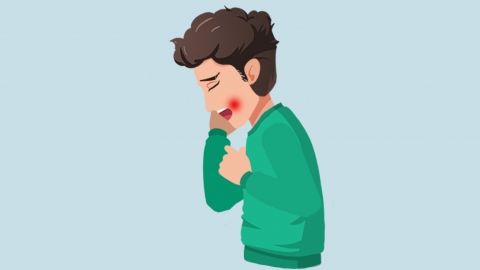What should I do for toothache and itchy teeth?
Under normal circumstances, tooth pain or itching may be caused by food debris impaction, tooth eruption stimulation, gingivitis, dental caries (cavities), periodontitis, and other reasons. It is recommended to seek medical attention promptly, identify the underlying cause, and then improve symptoms under a doctor's guidance through general treatments, medications, surgical interventions, etc. Specific analyses are as follows:

1. Food debris impaction: After eating, food particles can become lodged in gaps between teeth or within grooves, continuously irritating gum tissue and causing localized itching. Prolonged retention may also lead to mild gum pain. Clean interdental spaces thoroughly with dental floss after meals, use an oral irrigator for additional cleaning, and brush teeth twice daily (morning and night) using fluoride toothpaste and the Bass brushing technique.
2. Tooth eruption stimulation: When permanent teeth or wisdom teeth erupt, they must break through the gum tissue, creating pressure and friction on surrounding gums, which may result in mild pain or itching—this is especially noticeable during wisdom tooth eruption. Rinse the mouth with warm saline solution after meals to keep the erupting area clean, and avoid touching or pressing on the gums with hands.
3. Gingivitis: Accumulation of dental plaque and tartar along the gumline irritates the gums and triggers inflammation, manifesting as redness, swelling, pain, and itching of the gums, along with easy bleeding during brushing. Patients should follow medical advice to use anti-inflammatory medications such as metronidazole mouthwash, compound chlorhexidine mouthwash, or amoxicillin capsules.
4. Dental caries: Bacteria erode the hard tissues of the tooth, forming cavities. Deep cavities may stimulate the dental pulp nerve, causing pain, while trapped food debris in the cavity can induce gum itching. A dentist must remove the decayed tissue and restore the tooth using filling materials such as glass ionomer cement, composite resin, or polycarboxylate zinc cement.
5. Periodontitis: Untreated gingivitis can progress into periodontitis, where periodontal tissues are damaged and form periodontal pockets. This leads to obvious tooth pain and gum itching, accompanied by gum recession and loose teeth. Patients should take medications as prescribed by their doctor, such as metronidazole tablets, tinidazole tablets, or doxycycline hydrochloride tablets.
In daily life, reduce consumption of sweets and acidic foods, avoid exposing teeth to extreme hot or cold stimuli, undergo regular dental check-ups and professional cleanings, maintain good oral hygiene habits, and practice scientific oral care to support periodontal health and alleviate symptoms of tooth pain and itching.





